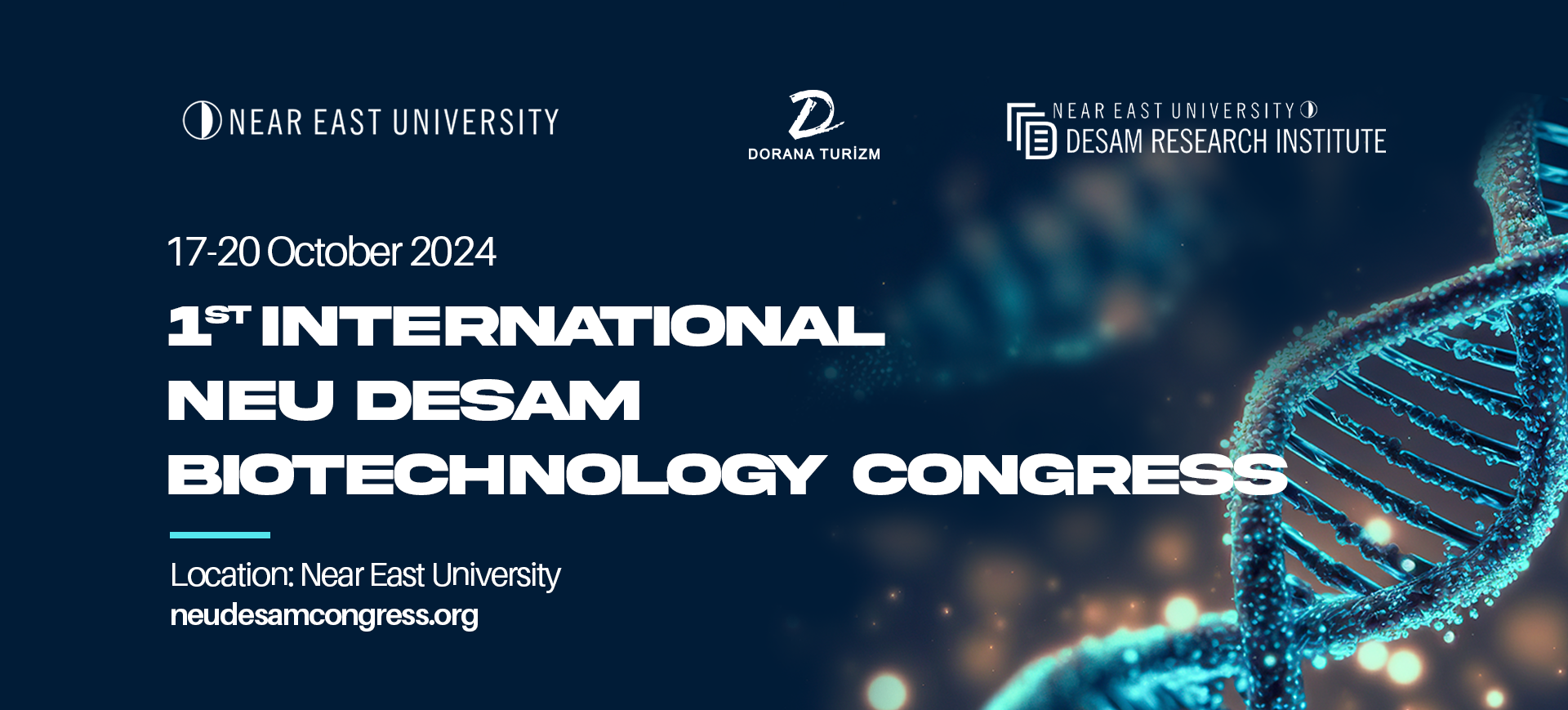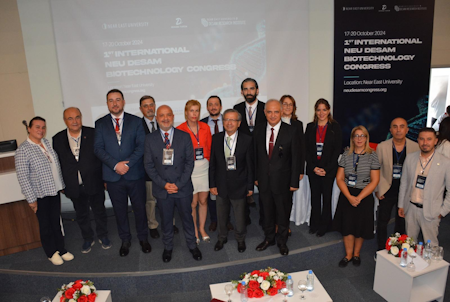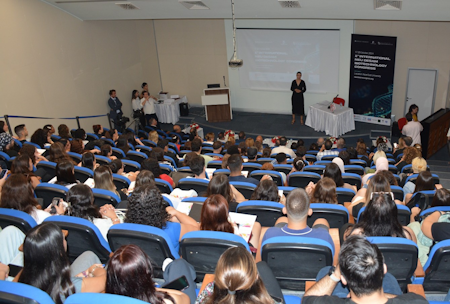
The 1st International NEU DESAM Biotechnology Congress, organized by the Near East University DESAM Research Institute, successfully concluded after four days of extensive scientific exchange. Bringing together 112 researchers from a wide range of countries including the USA, Germany, Austria, the United Arab Emirates, China, Iran, the Turkish Republic of Northern Cyprus, Kosovo, Egypt, Pakistan, and Turkey, the congress highlighted its international significance with the participation of university rectors and other distinguished guests.
Held at the Near East University Irfan Gunsel Congress Center, the program featured more than 60 presentations that addressed a range of critical topics in biotechnology. These sessions covered novel biotechnological methods, the introduction of new diagnostic kits, and recently developed analysis techniques, all of which attracted significant interest from attendees. In addition to the presentations, the congress hosted discussions on the future of biotechnological applications, culminating in a well-attended panel that explored upcoming developments in the field.
Throughout the event, the importance of interdisciplinary collaboration in advancing biotechnology was a central theme. Participants emphasized the need for joint efforts to achieve a sustainable future, and the congress served as a valuable platform for scientific exchange and the development of collaborative projects. It provided researchers with unique opportunities to connect, innovate, and explore potential partnerships.
The DESAM Research Institute has been actively contributing to both national and international scientific activities since its establishment as the Near East University Experimental Health Sciences Research Center (NEU-DESAM) in June 2015. In early 2020, it was restructured into a Research Institute, enhancing its role in Research & Development (R&D) and increasing the involvement of post-doctoral researchers. With five research laboratories and 12 research groups, the institute is home to more than 50 researchers from diverse fields. In 2023, DESAM made significant contributions with over 180 research publications in globally recognized journals and hosted numerous seminars, workshops, and conferences.
The institute’s current collaborations include projects with institutions in Turkey, Italy, and the UAE. DESAM Research Institute is dedicated to bridging the gap between health and technology by integrating advancements in fields such as artificial intelligence, 3D bioprinting, and genome engineering. Its mission is to conduct high-quality, multidisciplinary research that contributes to modern science and fosters international cooperation.

Biotechnology’s pivotal role in modern medicine was also underscored during the congress, with discussions on how it addresses various healthcare challenges, including the development of advanced diagnostic tools, personalized medicine, and treatments for complex conditions like cancer and autoimmune disorders. The COVID-19 pandemic further highlighted the importance of biotechnological advancements, particularly in the rapid development of diagnostic kits, vaccines, and therapeutic approaches. DESAM’s dedication to these advancements is evident in its development of 11 PCR kits for molecular diagnostics, the “Olirin” nasal spray in collaboration with Italian partners, and ongoing work on an innovative sequencing kit.
The congress was designed with a focus on supporting young researchers, including post-doctoral fellows and PhD students, by providing an international platform for presenting their work. The scientific committee emphasized originality, ensuring that all orally presented studies were original research. The event drew a high number of abstract submissions, with 31 selected for oral presentations and 9 for poster presentations. This successful start is expected to pave the way for future congresses, establishing a tradition of international scientific collaboration and exchange.

This congress represents the culmination of years of DESAM’s dedication to education, research, and knowledge-sharing through workshops, seminars, and conferences since 2015. It stands as a testament to the institute’s ongoing commitment to fostering scientific growth and international collaboration. By offering a platform for pioneering work and potential partnerships, the event has set the stage for continued progress in biotechnology and is anticipated to be a cornerstone for future innovations in the field.